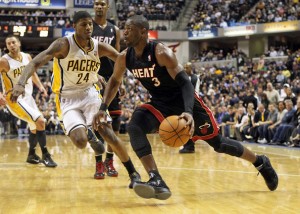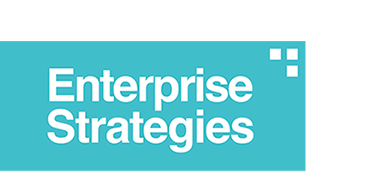
07 Jun Full-Court Social Press: Employee Social Adoption
The past few weeks delivered some of the most exciting games of the NBA Season, the Eastern Conference NBA Finals, featuring the matchup between the Miami Heat and Indiana Pacers. Primetime games between the defending champion and a rebuilding team captivated most of the country–and were, quite simply, fun to watch. Whether your favorite team won or lost, every game in the series was fast-paced, (mostly) close-scoring, and reminded people of why they love basketball.
Like a great championship basketball series that energizes fans, organizations need to have a social business strategy that energizes stakeholders. Think social business is unrelated to the NBA Finals? Time for a full-court social press.
Underestimating The Competition
 The Heat and Pacers are both great basketball teams in their respective ways, but no one anticipated the intensity of the games. Naturally bandwagon fans emerged for both sides since most people underestimated the length of the series. In the same way, many organizations underestimate the challenge of implementing social business. Social business isn’t a click-and-download solution–it requires considerable time and expertise to deploy processes and tools successfully. To be done correctly, companies must take time to analyze current management practices, examine organizational complexities, and determine feasible short- and long-term goals. Businesses commonly focus too much on the opportunities of social business and fail to recognize the ongoing challenges of transforming into a truly social operation. As the Heat and Pacers both discovered, it is not easy to win the Eastern Conference Championship–and social business isn’t simple either.
The Heat and Pacers are both great basketball teams in their respective ways, but no one anticipated the intensity of the games. Naturally bandwagon fans emerged for both sides since most people underestimated the length of the series. In the same way, many organizations underestimate the challenge of implementing social business. Social business isn’t a click-and-download solution–it requires considerable time and expertise to deploy processes and tools successfully. To be done correctly, companies must take time to analyze current management practices, examine organizational complexities, and determine feasible short- and long-term goals. Businesses commonly focus too much on the opportunities of social business and fail to recognize the ongoing challenges of transforming into a truly social operation. As the Heat and Pacers both discovered, it is not easy to win the Eastern Conference Championship–and social business isn’t simple either.
Uniting Behind Key Players
Just as fans rallied behind star players during the season, including the Big Three from the Miami Heat and emerging stars like Paul George of the Pacers, organizations need to leverage advocates as they deploy social business initiatives as well. Popular players like LeBron James and Roy Hibbert not only attracted fan and media attention (both positive and negative), but acted as leaders that catalyzed their teams when it mattered most. As part of any social business strategy, business leaders need to identify similar employee influencers. Those employees will increase social media adoption by simply setting the example–and encouraging others to follow their lead. The Heat and Pacers could not win without key players, and organizations won’t win in social business without clear internal advocates offering support and guidance to other employees.
Compelling Reasons To Watch
 As to be expected, the series between the Miami Heat and Indiana Pacers had top viewership ratings. It was a dream matchup–the teams came from opposite regular season tracks, play dramatically different basketball styles, and have a number of famous and polarizing players. In short, fans had countless reasons to buy tickets or tune into the games. As the NBA must provide compelling reasons for fans to watch by establishing a competitive league, organizations need to create compelling reasons for employees, managers, and stakeholders to support social business strategies. By identifying challenges employees are facing or inefficiencies departments are struggling with, businesses can develop custom social strategies to solve those issues. Taking the approach of eliminating current problems, organizations can offer targeted incentives for full employee social adoption.
As to be expected, the series between the Miami Heat and Indiana Pacers had top viewership ratings. It was a dream matchup–the teams came from opposite regular season tracks, play dramatically different basketball styles, and have a number of famous and polarizing players. In short, fans had countless reasons to buy tickets or tune into the games. As the NBA must provide compelling reasons for fans to watch by establishing a competitive league, organizations need to create compelling reasons for employees, managers, and stakeholders to support social business strategies. By identifying challenges employees are facing or inefficiencies departments are struggling with, businesses can develop custom social strategies to solve those issues. Taking the approach of eliminating current problems, organizations can offer targeted incentives for full employee social adoption.
Similar to how basketball is not just about slam dunks, social business is not simply about having a corporate Facebook or Twitter accounts. By leveraging advocates (your star players), providing incentives (creating compelling matchups), and being proactive (not underestimating the power of social), organizations can ensure they maximize the benefits of social business across all departments.

